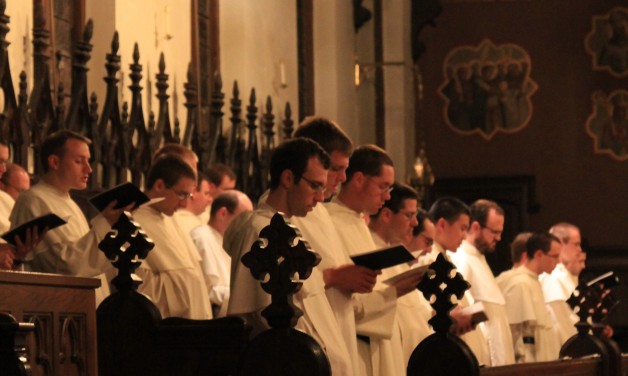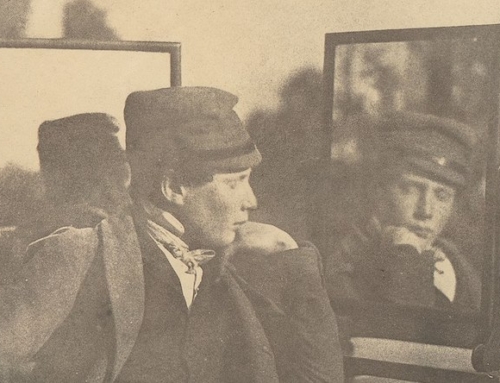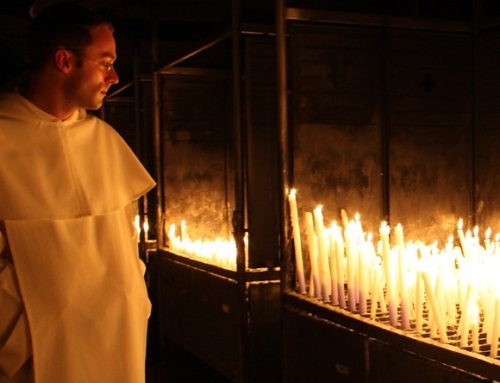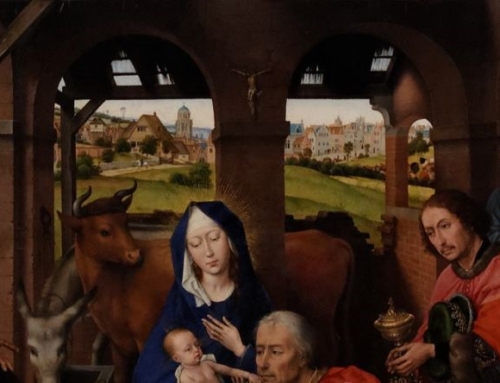The difference between a good haircut and a bad haircut is three days. My long-time barber explained his philosophy noting that three days is the time that it takes to get adjusted to something. While I would make an exception for a horrible or really uneven haircut, I agree with his general sentiment that we get accustomed to new things very quickly.
Our ability as humans to quickly adapt to new situations is a wonderful skill, but I wonder how much we lose in the adjustment. This is especially pertinent in the religious life of a monk, cloistered nun, or even a friar where we come together to pray four or five (or more) times each day in the same chapel, chanting the same sets of psalms, week after week. This routine has its dangers as it is so easy to sing on auto-pilot and not pay attention to what we are doing or saying.
I was recently reminded of just how much I have become acclimated to the routine when the new student brothers, fresh from novitiate and simple profession, joined us. At the Dominican House of Studies we have regular processions after Vespers or Compline, singing some of the great Dominican chants including the Salve Regina and the O Lumen. Finishing a procession that first weekend, one of the new brothers next to me in line turned to me and said, “That is so cool.” And indeed it is – cool and also incredibly beautiful, and I get to do it several times a week! I remember experiencing the beauty and solemnity of these processions while visiting the House of Studies before becoming a friar myself. Now, I am part of that same procession with all its beauty, and yet I do not often see the beauty. Instead, I can list all of the singing mistakes, the homework that still needs to be done, the brothers who are particularly annoying me today, besides wondering what is for dinner, or focussing on a thousand other issues. I may be physically present, but mentally, I am often far, far away.
The saints have learned to keep their attention on the beautiful little things. There is a story of Mother Teresa riding with a car-full of her sisters down a busy highway when she suddenly ordered them to stop and turn around. She alone of all the sisters had seen a very sick man lying on the other side of the road. The sisters were surprised that Mother saw the man across several lanes of heavy traffic, but Mother Teresa was attuned to see the little things which God was pointing out to her.
So too Elijah, fleeing to Mount Horeb to seek God, knew that God was not the big and great things: neither the strong and violent wind nor the earthquake nor the fire. It was only with the arrival of the soft, whispering voice that Elijah buried his head in his cloak, knowing that he was now in the presence of God.
In the parables, Jesus himself tells us that the Kingdom of God is found in small things of daily life – a mustard seed, a single sheep or coin, little children, faithfulness in small deeds. All of these are things that we can easily overlook in our own life because we are acclimated to them, and we will always have them, because they appear so ordinary and plentiful. We need to slow down and enjoy these little things of life, especially those we know very well, to see the great beauty of God’s creation that surrounds us all the time.
God is always present to us, but are we always present to him?
Blessed Teresa of Calcutta, pray for us.
✠
Image: Fr. Lawrence Lew, O.P., Compline at the Dominican House of Studies







